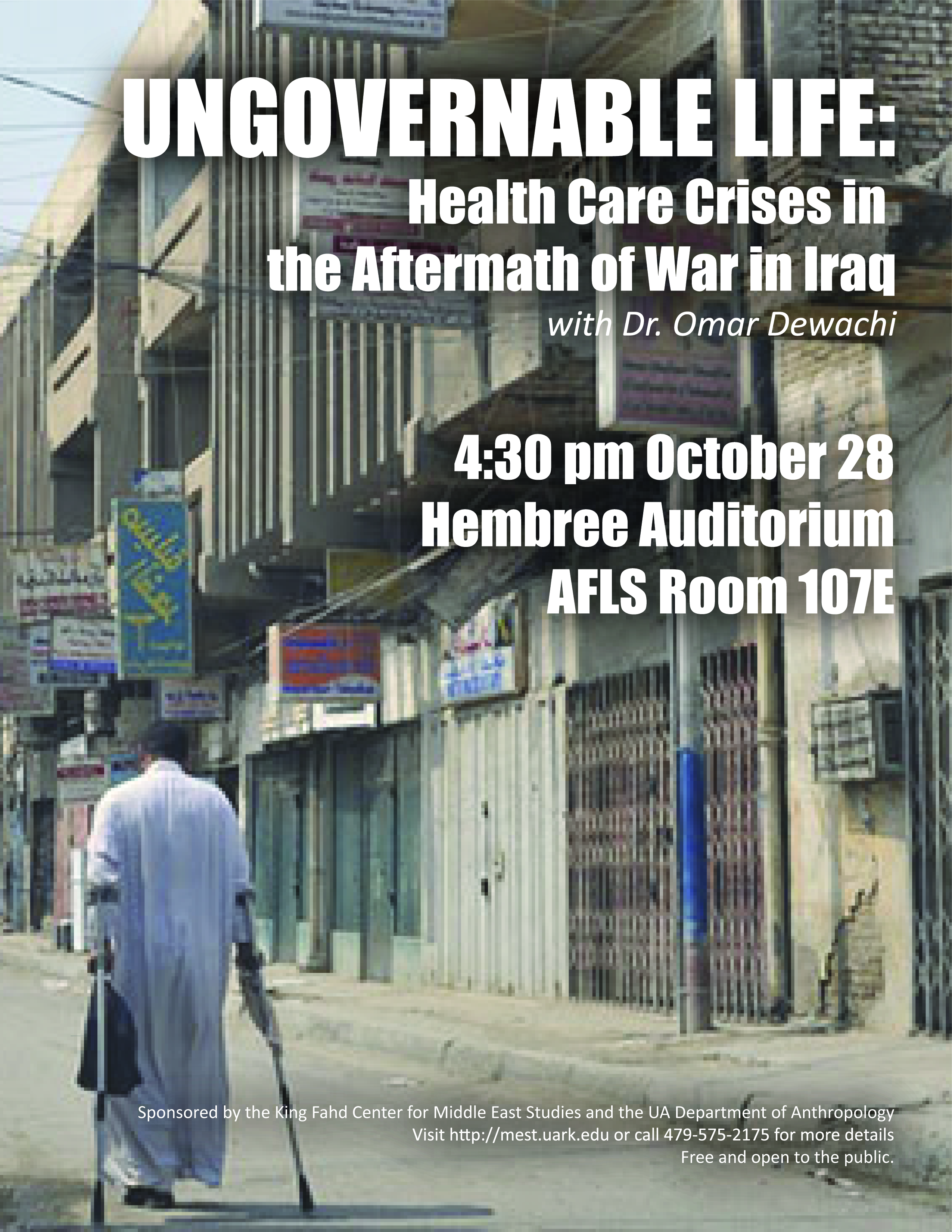
The King Fahd Center at the University of Arkansas is pleased to announce "Ungovernable Life: Health Care Crises in the Aftermath of War in Iraq", a special guest lecture by Dr. Omar Dewachi , medical anthropologist, doctor, and expert on public health in Iraq. The lecture will take place at 4:30 p.m. Monday, Oct. 28, in the Hembree Auditorium (AFLS 107E), and is free and open to the public.
An assistant professor of medical anthropology and public health at the American University of Beirut (AUB), Dewachi trained as a medical doctor in Iraq during the 1990s and received his doctorate in social anthropology from Harvard University in 2008. His research interests include biopolitics, war, colonialism, global health, and the Iraqi state; he teaches a variety of courses on social medicine, global health and medical anthropology, and has conducted ethnographic fieldwork on the exodus of Iraqi doctors to Britain and across the Middle East. Currently, he is conducting research on Iraqi patients seeking medical care in Beirut for cancer and war-related injuries. He is finishing a book manuscript entitled Ungovernable Life: War and Mandatory Medicine in Iraq, leads the War and Global Health Working Group at AUB, and is one of the contributors to the Costs of War Project at Brown University.
Dewachi's work explores what he calls the tensions between the 'necropolitics' of war and the 'biopolitics' of statehood in post-U.S. invasion Iraq. He examines the state of public health, the role of state-sponsored medicine, and the 'toxicity of daily life' in Iraq since the invasion and occupation of 2003, the toppling of Saddam Hussein and the insurgency that followed. His work is based on research undertaken in Iraq with doctors, public health and other government officials, and patients.
This program is sponsored by the King Fahd Center for Middle East Studies and the U of A department of anthropology.
Topics
Contacts
Nani Verzon, Program Coordinator
King Fahd Center for Middle East Studies
479-575-2175,